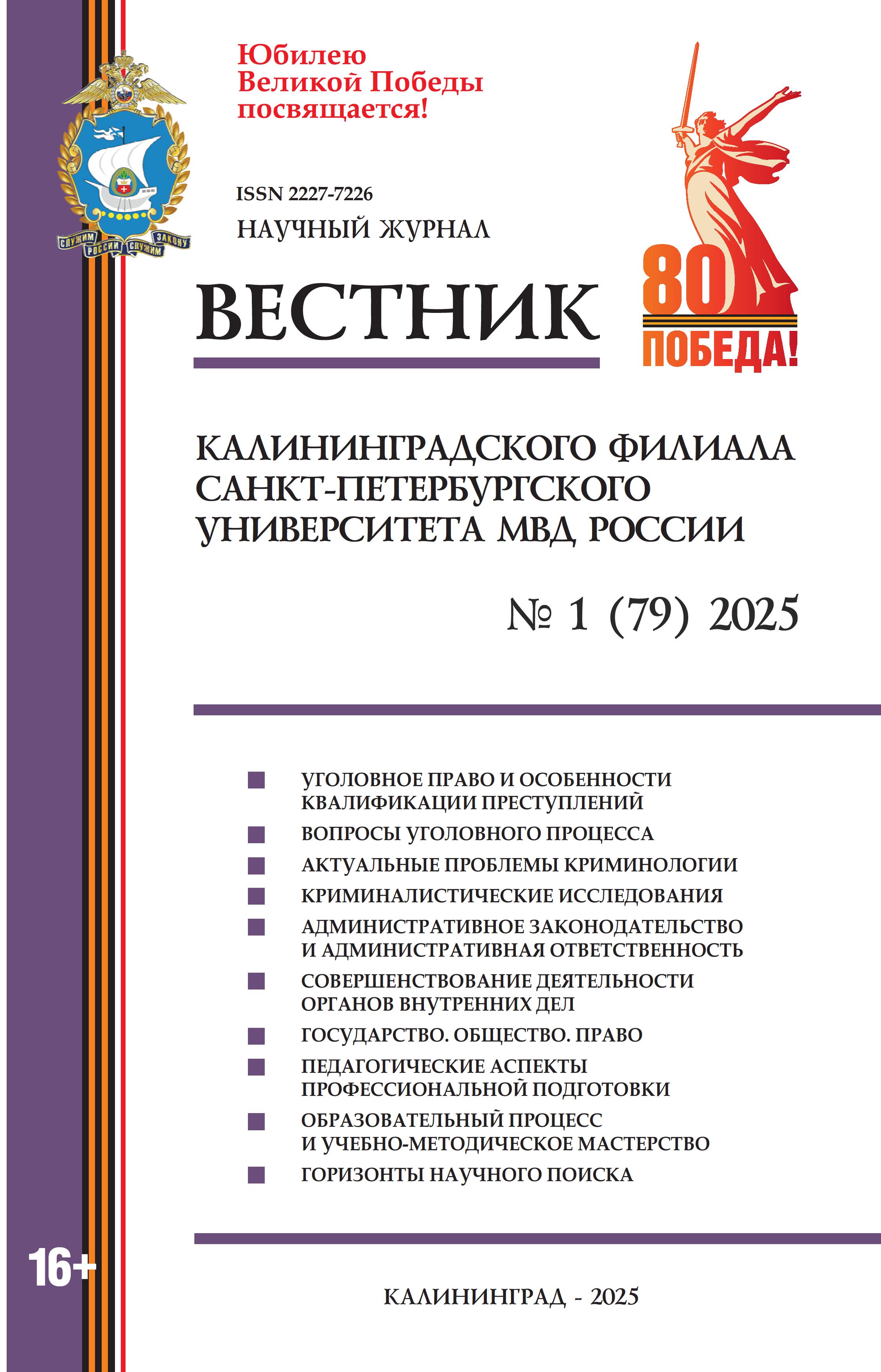graduate student from 01.01.2021 to 01.01.2025
Petropavlovsk-Kamchatskiy, Kamchatka, Russian Federation
Introduction. In modern Russian criminal proceedings, issues related to the appointment and conduct of forensic examinations, including in non-governmental (non-departmental) expert institutions and by private experts, remain of great importance. This area of activity is becoming especially relevant today due to the rapid development of science and technology, crafts and art, as well as the emergence of new methods for conducting expert research. Competent actions of the investigator when appointing a forensic examination in a criminal case are the key to a successful investigation, establishing all the circumstances of the crime committed that need to be proven, and solving crime prevention problems. When appointing a forensic examination, the investigator must build effective interaction with expert institutions and experts, which contributes to compliance with a reasonable period of preliminary investigation and ensuring the rights and legitimate interests of participants in the criminal process. Methods. The analysis of the features of the investigator's activities when appointing forensic examinations in non-governmental (non-departmental) expert institutions was carried out on the basis of a study of criminal case materials. The study also used the method of logical analysis of the norms of the current legislation. Results. The study allowed to determine the relevance of further study of the problem of assignment of expert examinations to non-governmental (non-departmental) expert institutions and private experts. The article presents the author's position on the positive and negative aspects of using special knowledge in the framework of forensic examinations, assigned not only to state expert institutions. Based on the results of the study, techniques for ensuring the most effective interaction of the investigator with expert institutions and private experts when assigning an examination in a criminal case were developed and proposed for practical use. Typical errors of investigative bodies in the implementation of this type of activity are analyzed, and ways to solve them are considered.
Investigation of crimes, investigator, expert, interaction, assignment of forensic examination, criminal proceedings, forensic research.







